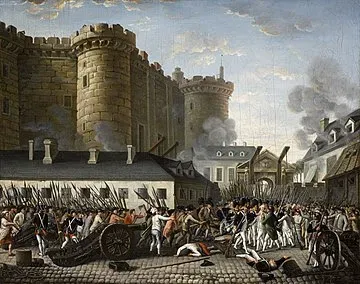What Are The Causes Of the French Revolution?
Table of Contents
The French Revolution is one of the most significant events in European history. It began in 1789 and lasted for a decade, during which time France underwent significant social, political, and economic changes. The revolution was caused by a combination of factors, including social inequality, political corruption, economic hardship, and Enlightenment ideas.

Causes of the French Revolution:
Social inequality was one of the primary causes of the French Revolution. At the time, France was divided into three estates: the First Estate, which consisted of the clergy; the Second Estate, which consisted of the nobility; and the Third Estate, which included everyone else. The Third Estate made up the vast majority of the population but had very little political power or representation. They were burdened with heavy taxes and had no say in how the country was run.
Another significant cause of the French Revolution was political corruption. The absolute monarchy had become increasingly corrupt and inefficient, and the government was rife with bribery and nepotism. The people had lost faith in their leaders and were calling for reform.
Economic hardship was also a contributing factor to the French Revolution. France was heavily in debt due to its involvement in several wars, including the Seven Years' War and the American Revolution. The government was unable to balance the budget, which led to widespread poverty and hunger among the lower classes.
Finally, Enlightenment ideas played a significant role in the French Revolution. The Enlightenment was a philosophical movement that emphasized reason, individualism, and liberty. Enlightenment thinkers such as Jean-Jacques Rousseau and Voltaire challenged traditional beliefs about the divine right of kings and the legitimacy of the aristocracy. Their ideas were widely read and discussed, and they helped to inspire the French Revolution.
Immediate Cause of the French Revolution:
The immediate cause of the French Revolution was the financial crisis that the government faced in the late 1780s. King Louis XVI was forced to call a meeting of the Estates-General in 1789 to address the country's financial problems. The Estates-General was a representative body that included representatives from all three estates. However, the Third Estate, which had no political power, demanded that it be given greater representation and power in the government.
When the king refused to grant their demands, the Third Estate declared itself the National Assembly and began drafting a new constitution for France. This sparked a wave of protests and violence across the country, as people demanded an end to the old regime and the establishment of a new, more democratic government.
Results of the French Revolution:
The French Revolution had far-reaching consequences for France and Europe as a whole. The most immediate result of the revolution was the overthrow of the old regime and the establishment of a new, constitutional monarchy. The king was forced to accept the new constitution, which established a system of checks and balances and limited the power of the monarchy.
The revolution also led to significant social changes in France. The aristocracy was abolished, and the principle of equality was enshrined in the new constitution. This meant that all French citizens were entitled to the same rights and protections under the law, regardless of their social status.
The revolution also had a significant impact on Europe as a whole. The revolutionary ideals of liberty, equality, and fraternity spread throughout the continent, inspiring other nations to challenge their own monarchies and aristocracies. The French Revolution marked the beginning of the end of the old order in Europe, paving the way for the rise of democracy and the modern nation-state.
However, the French Revolution was not without its problems. The revolutionary government was plagued by instability and violence, and the Reign of Terror saw thousands of people executed for their perceived opposition to the revolution. This led to a backlash against the revolution in some quarters, and the rise of Napoleon Bonaparte, who established a new, authoritarian government in France.
Come back for more interesting facts about history on
101 history facts. 🏆🥇🏆🥇🏆🥇
great blog and good info thank you, 👍👍
ReplyDelete